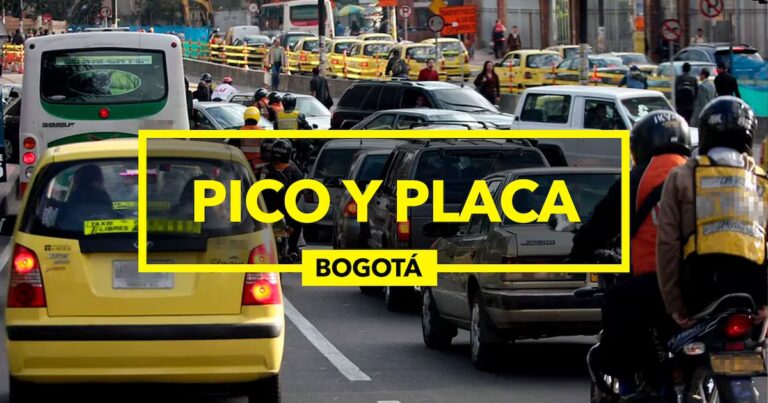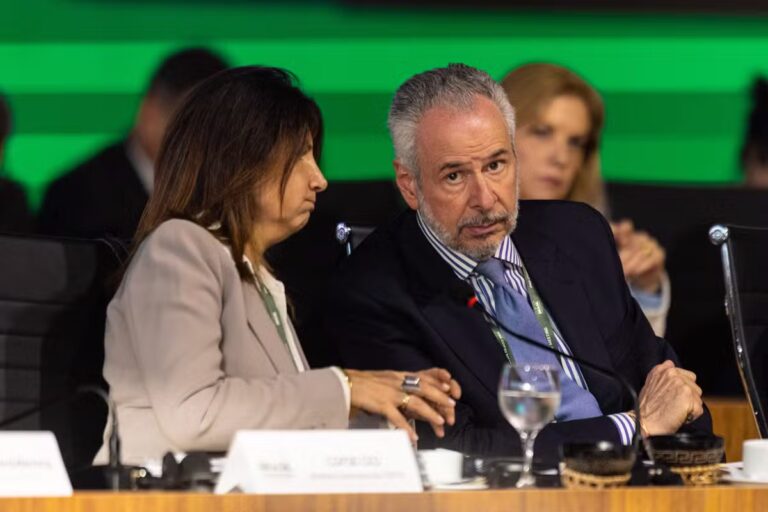
Economist Federico Sturzenegger (Ruffino, 1966), one of the brains behind Javier Millay’s economic plan, will head the Ministry of Deregulation and National Transformation from July 2024. He served as central bank governor during Mauricio Macri’s government and previously held senior positions. … With Domingo Cavallo. He now defines himself as the president’s liberal “chainsaw” executor. He speaks slowly but with the conviction of someone who believes he is leading an institutional revolution destined to change Argentina’s economy forever.
— You took office in July 2024. What were your main goals when you took office, and to what extent were you able to achieve them?
-The ministry has two souls: national reform and deregulation. The first corresponds to Javier Millay’s “chainsaw” idea of a smaller, cheaper, more efficient state. Every peso spent by the state comes from taxes. The smaller the size, the lower the tax burden. We have made a lot of progress in this area. When we arrived, the total number of central administrations, decentralized organizations, and public companies was about 300,000. Today there are 240,000 people. This is a 20% reduction without affecting the quality of public services. The second is deregulation. We believe that free people produce more and better, and that markets exist to serve, not harm. We start from the premise that the majority of the population is honest, not criminal, and should not be regulated as if everyone were. Since taking office, we have made approximately 10,000 deregulations between laws, ordinances, and resolutions that impose unnecessary obligations. And keep adding.
— In Europe, we live under a complex set of national and European laws. Could you give me an example of such deregulation?
— Ten days after Javier Millay took office, the rental market was completely deregulated. Previously, laws prohibited free price updates and imposed minimum deadlines and unreasonable restrictions. we eliminate everything. The parties can now agree to a rental in the time, currency, and terms of their choice. The results were immediate: rents fell by 30% in real terms, benefiting 8 million people. As another example, satellite internet provision was banned. Some people didn’t like it and managed to get the state to ban it. This rule has been abolished, and one million Argentines now have access to satellite connectivity in remote areas without the state spending a single peso. In fact, Starlink is saturated in Buenos Aires. It also freed up the aviation market. One million Argentines now fly commercially within 50 kilometers of their homes, a route that did not exist before.
— Spain has 17 autonomous communities with different regulations. How do you deal with states that have similarly broad powers?
— Each state has its own public spending and regulatory framework. For example, the province of Buenos Aires is highly regulated and has high tax pressure. But President Milais asked us to focus on the national level. He says, “The people elected me to run the central government, not the local governments.” Our mission is to cleanse at the national level. Deregulation and the “chainsaw” will reach local areas through voting. There will be a gubernatorial election in 2027, and we will introduce La Libertad Avanza candidates who will bring this model to the district.
–So what happens if the local government re-introduces the rules you abolished?
— It happens. In some cases, national regulations may be removed and then reinstated by the state. But that’s part of the process. Our priority is to clean up at the federal level. When we govern the provinces, we will continue to deregulate them.
— Are there any notable differences by state?
— Yes, the creativity of local regulations is extraordinary. But there is also competition between them. Federalism recognizes diversity and allows people to “vote with their feet.” Our party believes that local governments are overspending and that this is where the greatest regulatory abuses lie. Example: In the city of Torres de Febrero, where a mayor from Millei took office, the commercial licensing department was abolished. Previously, opening a gym required countless permission lists. Now, citizens just have to abide by the rules and declare they can function. There may then be a post-audit, but we start with trust, not suspicion.
–Which field has seen the most progress in deregulation?
— all in all. In foreign trade, dozens of para-tariff barriers have been eliminated. Reforms have reduced costs in land, air, and sea transportation. In the agricultural sector, you used to need a permit to harvest pears, but we have eliminated that absurd bureaucracy. Health authorities need to ensure health for more than just the size of a garlic clove. Great advances have also been made in the field of health and medicine. Deregulation is cross-cutting.
—What other tangible economic impacts have you observed?
–Generally, when regulations are relaxed, prices fall by about 30%.
–Your critics argue that this accelerated deregulation could put oversight and certain rights at risk.
— All regulations aim to balance risk and return. Bureaucrats are good at envisioning disaster, but they rarely consider the hidden costs of their rules. Reactive control works better than ex-ante control. You don’t ask for permission to cross the road, but if someone runs you over, justice will take action. But economics seems to require prior permission for everything. This results in higher costs, lower speeds, and distortion.
— I mentioned the specific case of foot-and-mouth disease. It is said that animal vaccinations have been suspended to cut costs, which has affected exports.
— Align your system to international standards. Previously, they were vaccinated twice a year. Now it is one like the whole world. Vaccine distributors protested, but there were no health concerns. Additionally, the United States plans to quadruple its meat export quotas. We also unified the domestic market. Previously, the North couldn’t sell meat to the South, so barbecue was 40% more expensive. We allowed it and the price went down. We take risks, but we will modify as necessary.
— In Europe, deregulation becomes the banner for liberal governments when they can no longer lower taxes. Is something similar happening in Argentina because reforms such as labor reform and tax reform have not been implemented?
–No, it’s not a replacement strategy. That is the essence of Javier Millay’s thinking. Small nations, balanced budgets, respect for property and economic freedom. For the first two years, with minimal parliamentary representation – 8 of 72 senators and 30 of 256 members of the House of Representatives – he stabilized the economy by cutting spending, running surpluses, and cutting taxes. This has lifted 12 million Argentines out of poverty. With inflation under control, we were able to move forward with fundamental reforms to labor, taxes, and criminal law.
–And what about your pension?
–The pension will come later. Currently, half of the workforce is non-regular. It makes no sense to design a pension system if half of it is outside the formal market. You need to incorporate them first.
–Many liberals had expected such reforms from the beginning. Why only now?
–Because they didn’t have a majority in Congress. But after the last election, it is. The president announced that he will submit labor and tax reform proposals to an extraordinary session of the Diet.
–The election results are very important because many people thought that if Millais continued for four years, everything would turn around. Were you afraid of it too?
—The election was key for several reasons. In 2023, people voted for Javier Millay, the biggest change imaginable. They could no longer tolerate stagnation. Two million Argentines have left the country in the past decade. Two years later, people saw how Millais ruled. He vetoed the pension increase bill a month before the election. This showed that he is prioritizing fiscal discipline. People said: “This is what I want.” We don’t want to go back to high inflation. I want stability and financial freedom. The final vote was a conscious ratification of this line. Additionally, we passed legislation to change our electoral system. Changed from multiple ballots, which were prone to fraud, to a single paper ballot. This reduced fraud and made monitoring easier. It appeared that the lower limit for Kirchnerism was 30-35%, but it turns out that it is actually around 20-25%. Both explicit support for the program and structural mitigation of Kirchnerism strengthen project continuity.
–You also worked with Cavallo and Macri. Why is this time different?
–Because now we understand the problem. Participating in a government that had poor results led me to consider why honest, capable people were unable to change course. I developed a theory calling Argentina the “Bermuda Triangle.” trade unions, “prebender” businessmen (who benefit from clientelistic capitalism), and Peronism. They are the impediments to change. To defeat them, you need to take away their income. Each reform has an economic layer and a political layer. Competition not only creates efficiency but also erodes the power of these groups. Labor reform aims to do the same. The goal is to decentralize negotiations and weaken labor unions that hinder regular employment.
–But that’s a dangerous bet.
— The same goes for crossing the street. But if those agents are still there, everything could be reversed. Not this time. Because we have strategies to fight them. We seek support without confrontation, but we will not tolerate a system that has not created regular jobs for 10 years.
Q: Would Donald Trump’s support be key in that scenario?
— This is important support, more geopolitical than economic, but permanent. Moreover, many Argentine governors are willing to make significant changes, such as federalizing salary negotiations.
– How do you expect international investment to react to deregulation?
– Economist Ricardo Hausmann often asked this question upon arriving in a country. “What’s new here?” There are many new things in Argentina today. We are experiencing an energy and mining boom. If we balance our finances and respect property, this country will get back on track. Things are happening. And those are good things.



